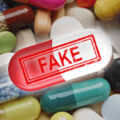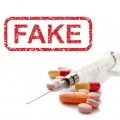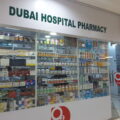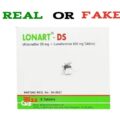
If you are reading this article from a developing country there is a 17 % chance that the last medication you took was fake, such is the level of inhumanity, fraud, and malevolence that currently characterize the pharmaceuticals drug market in Africa.
The continent is also saturated with Chinese quacks exploiting the vulnerable by selling Chinese food supplements as a treatment for a wide range of infections and diseases including HIV and cancer. So unregulated is the drug market in developing countries that, virtually anything and everything is sold as remedies and treatments for unimaginable conditions. The black market for counterfeit drugs is worth billions, but it does untold damage to the health of the poorest populations.
According to information available on the Essential Medicines and Health Products Information portal of the World Health Organization, the proliferation of fake drugs in Nigeria has affected the credibility of the Healthcare system which can result in very harmful effects on consumers leading to illness, disabilities, and even death.
What are Fake Drugs?
Fake drugs also referred to as counterfeit drugs can be defined as illegally produced drugs or pharmaceutical preparations that may be contaminated or contain the wrong or no active ingredient at all. They sometimes have the right active ingredient but at the wrong dose. Fake drugs are illegal and may be harmful to your health.
Fake drugs and their effects on the Nigerian nation and her citizenry cannot be overemphasized. In this article, we set out to provide the public with a clear picture of the damages and consequences of lax regulation in developing countries especially Africa and Nigeria particular, as we intensify the fight against fake counterfeit products in our quest for a safer and healthier society.
How to Spot Fake Drugs Vs Real
A consumer, may not have access to most of the test equipment used by regulatory bodies to verify the identity of a drug product but here are simple guidelines that can help identify a fake Drugs pill;
Check the Drugs Packaging: This is the simplest and the easiest method to check the authenticity of Drugs. Check the packaging for details like unusual fonts, print color, and missing logos. Analyze whether it appears the same or different from the one you have used before.
No Breakage in the Seal: A drug pill packet or container that comes with a security seal should not be damaged. Look for a crack or break in the sealing tape.
Check the Drugs Dosage Form: Look for dissimilarities in the physical appearance of the drug like its color, size, uniformity, consistency, shape, etc.
Physical Attributes of the pill: As stated by World Health Organization, the common physical attributes that need to be looked out for in medicine tablets are;
- Small pieces of tablets, excessive powder at the bottom of the medicine container, or brittle and crumbly capsules spilling powder.
- Cracks in tablets or capsules.
- The appearance of crystal on the container walls or on the medicine tablets.
- Softening or hardening of the medicines.
- Swelling, spots, or discoloration of the tablets or capsule.
Allergies / Unexpected Side Effects from using Drugs: Most medicines have side effects. It is important to consult your doctor before the usage to keep a check on allergies arising from it. If you notice certain unexpected or harmful side effects from your medication, report them to your doctor immediately.
Price of Drugs: If the price of a drug is suddenly far cheaper than the usual rate, double-check the product as there may be a chance that the fake companies wanted to lure customers by providing medicines at much cheaper rates.
Verify Online or SMS: Many countries including Nigeria have unique methods for the verification of the genuineness of pills using authentication codes or other online portals to confirm the authenticity of the pills being purchased.
Fake Drugs Statistics In Nigeria and Africa
The Current Picture
- Nigeria is the world’s largest market for fake and counterfeit drugs among developing nations of the world according to NAFDAC
- Each year, more than 120,000 Africans are killed by Fake Malaria drugs
- 10- 30% of drugs and pharmaceutical products sold in developing countries are fakes and counterfeits
- India and China are the major manufacturers and suppliers of fake and counterfeit drugs globally
- According to the World Health Organization (WHO) 16% of fake/counterfeit drugs contain the wrong active ingredient
- About 33 % of all anti-malarial drugs which find their way into patent medicine stores, pharmacies, clinics, and hospitals in sub-Saharan Africa are fake.
- A recent study that evaluated the quality of drugs globally found that overall, 9.1% of drugs worldwide failed the basic quality control tests. The study also reported that the drug failure rate in Africa was 16.6%, about one in every six pills.
- According to the International Criminal Policing Association otherwise known as (Interpol) fake and counterfeit drugs kill 1 million people every year.
- Over 30% of counterfeit drugs currently being consumed globally are placebos and do not contain any active ingredients whatsoever.
- As of 2014, 10,603 websites were selling counterfeit medicines on the internet
See: Online Pharmacy In Nigeria
List of fake drugs in Nigeria and how to identify fake drugs in Nigeria
Below is a list of drugs most frequently counterfeited by Chinese and Indian companies most times with the active connivance of Nigerians and other Africans.
- Beecham Ampiclox – Check out for the authentication code
- Augmentin 625mg- Beecham – Check for authentication code
- Fansider – Fansider in Nigeria is now a Swider check for authentication code
- Amalar – From Elbe Check for the authentication code before you buy
- Quinine Sulphate 300mg Batch Number: F4387, manufactured by Novadina Pharmaceutical Ltd is fake
- Buscopan – Any Buscopan that is not bitter and tastes like chalk is most likely cassava powder talk to your pharmacist.
- Fucin tablet – Go for trusted brands with codes for many fake products in the market
- Viagra – The market is flooded with fakes and counterfeits patronize only registered and reputable pharmacies. Pharmaceutical Security Institute reports that 37% of all fake medicines seized are erectile dysfunction drugs, and unsurprisingly Viagra is now the second most counterfeited drug in the world
- Fubact -A cream – When you buy this cream, look for inconsistencies and reject anyone with funny spelling or inscriptions.
- Coartem – The active ingredients on the sachet of fake Coartem tablets are wrongly written as artemether/umfantrnewhile the manufacturer is written as The use of fake Coartem tablets may result in poisoning (due to toxic substances), treatment failure, development of resistance, and even death. See: Health Websites In Nigeria
A list of Non-ACT antimalaria drugs banned in many countries but still in circulation In Nigeria and African countries include:
- Alaxin 60mg tablet (dihydroartémisinine)
- Alaxin oral suspension (dihydroartémisinine)
- Amodiaquine 200mg
- Arinate 100mg tablet (artésunate)
- Arinate 50mg tablet (artésunate)
- Arsumax 50mg tablet (artésunate)
- Artemax 60mg tablet (dihydroartémisinine)
- Artémédine 40mg capsule (artemether)
- Artémédine 50mg tablet (artemether)
- Artenam 50mg tablet (artemether)
- Artenam 60mg tablet (artemether)
- Artésiane 300mg child powder oral suspension (artemether)
- Artésunate 100mg compressed
- Artésunate 50mg tablet
- Artexin 60mg tablet (dihydroartémisinine)
- Camoquin 200mg tablet (amodiaquine)
- Camoquin 200mg tablet (amodiaquine)
See: List Of Banned Drugs, Food and Cosmetics In Nigeria
SPECIAL MENTION
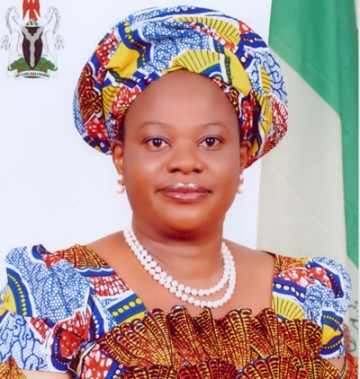
The fight against counterfeiting is a fight that must not be lost!!!!
Copyright © Permission is hereby granted for the use of whole or parts of this article provided appropriate credit is given to www.publichealth.com.ng
References
http://www.bbc.com/news/business-37470667
http://www.insightcrime.org/news-briefs/counterfeit-drugs-kill-1-million-annually-interpol
http://www.dailytrust.com.ng/index.php/news/172102–nigeria-largest-market-for-fake-drugs–nafdac
Public Health Nigeria an Interdisciplinary public health movement focused on health education, advancing fair public health policies, promoting fitness, healthy diets, responsible behavior, community health and general well-being.

